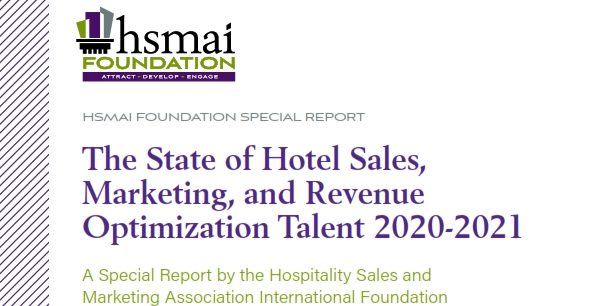By Karen Wollard, Ed. D., CHDM, HSMAI Research Manager
Authenticity, accountability, and transparency — these characteristics have been most strongly associated with leaders who are successfully navigating the pandemic’s challenges, according to the HSMAI Foundation’s State of Hotel Sales, Marketing, and Revenue Optimization Talent: 2020-2021 special report. As marketing, sales, and revenue optimization teams work toward being fully staffed again, hospitality talent expects these characteristics — and more — of their leaders at every level.
 When the pandemic started, good leaders listened and adjusted, allowing the difference between what was and was not within their control to dictate the right actions to move forward. Hospitality leaders agree that the humanity of leadership is critical, along with humility and leading with a servant mentality.
When the pandemic started, good leaders listened and adjusted, allowing the difference between what was and was not within their control to dictate the right actions to move forward. Hospitality leaders agree that the humanity of leadership is critical, along with humility and leading with a servant mentality.
Compassion and curiosity are key elements in leading organizations with strong manager/employee relationships. Leaders who embraced this acknowledged that their people were human first and addressed the physical, mental, and emotional aspects of the crisis. They also admitted they, too, were feeling the strains. Servant leaders look to make their team’s lives easier.
Authentic leadership was personified by the late Arne Sorenson, who was president and CEO of Marriott International, when he took to video in March 2020 to deliver the unwelcome news “face-to-face” with Marriott’s employees, stakeholders, and customers: “I can tell you that I have never had a more difficult moment than this one. There is simply nothing worse than telling highly valued associates — people who are the very heart of this company — that their roles are being impacted by events completely outside of their control.”
Before his passing in January 2021, Sheldon Adelson, CEO and chairman of Las Vegas Sands, called on corporate executives to maximize the number of employees and families they could help. He paid his 10,000 employees as though they were still working, even as the resorts were shuttered. Many large organizations raised funds to support furloughed workers and extended benefits. Others shared food, resources, job leads, support for unemployment applications, and more.
Managing Challenges at Every Level
Leaders at every level had to become comfortable with the uncomfortable and expect the unexpected, while moving decisively and empathetically. They had to keep a steady direction, while managing major crises, to help teams focus on priorities and find efficiencies wherever they could. Additionally, flexibility and resilience in the face of reduced bookings and mounting costs led some teams to creative solutions, including taking on new tasks such as stripping beds or helping prep food. One leader said this also brought out strengths in people that may have otherwise gone unnoticed.
As change became a constant, leaders had to make decisions without full data and then constantly reevaluate as new information changed the landscape. Managers had to be flexible as their employees struggled with homeschooling their children, caring for sick relatives, and learning new technologies and techniques to do their jobs. Inflexible managers who tried to stick to the rules or enforce one rule on many created stress and burnout.
With their data and insights, as well as experience representing their brands, chief marketing officers were invaluable strategists during the pandemic, determining the profile of the “new” guest, devising plans on increasing occupancy, and crafting unique messaging to address those who were still traveling. In addition, chief human resources officers and chief commercial officers had to collaborate to determine how to move forward. While some organizations chose to furlough sales, marketing, and revenue staffers because there was no business, others combined the teams, encouraging them to work together to figure out how to fill rooms at a profit. These early decisions continue to reverberate as the industry rebounds. General managers are still working to determine the balance as they employ new workers and continue to deploy existing staff across multiple roles.
Broader Leadership Issues
Along with the pandemic came additional crises that demanded leadership attention:
- Stockholder demands for bold strategies and aggressive measures. Investors and owners, especially hotel owners, have seen nearly two years of losses, and many markets are still slow to rebound.
- Stakeholder capitalism — the idea that business serves not only shareholders but consumers, suppliers, workers and the greater society — has gained prominence as the COVID-19 crisis demonstrated the interconnections between business and society, according to McKinsey.
- New focuses on social justice and sustainability, and environmental challenges from wildfires, floods, tornadoes, and hurricanes. From George Floyd’s death sparking social unrest to record-breaking weather and climate challenges, the pandemic was just one disaster on top of others.
There have been extensive changes in the C-suites of many hotel companies, as leadership continues to grapple with enormous business pressures. These issues will be part of what marketers and revenue managers will be adding to their environmental scanning as they view the post-COVID landscape.
This is an excerpt from the HSMAI Foundation’s State of Hotel Sales, Marketing, and Revenue Optimization Talent: 2020-2021 special report. To learn more about the HSMAI Foundation and its mission, visit the Foundation website.
